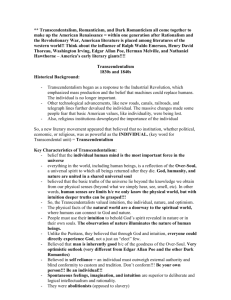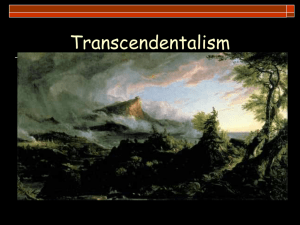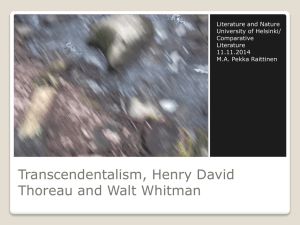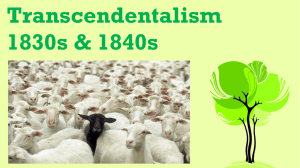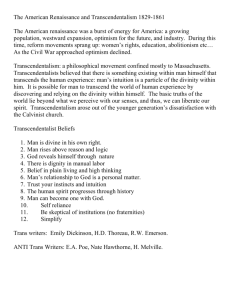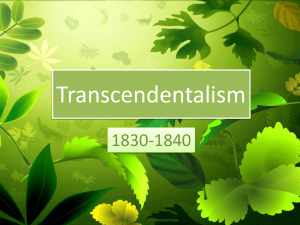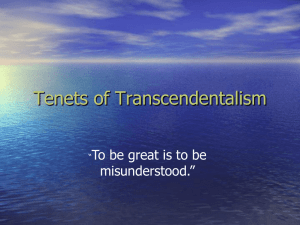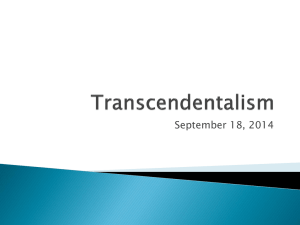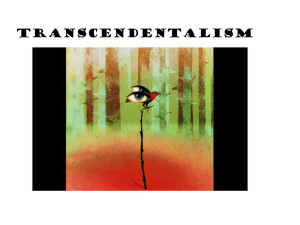What is Transcendentalism - URI
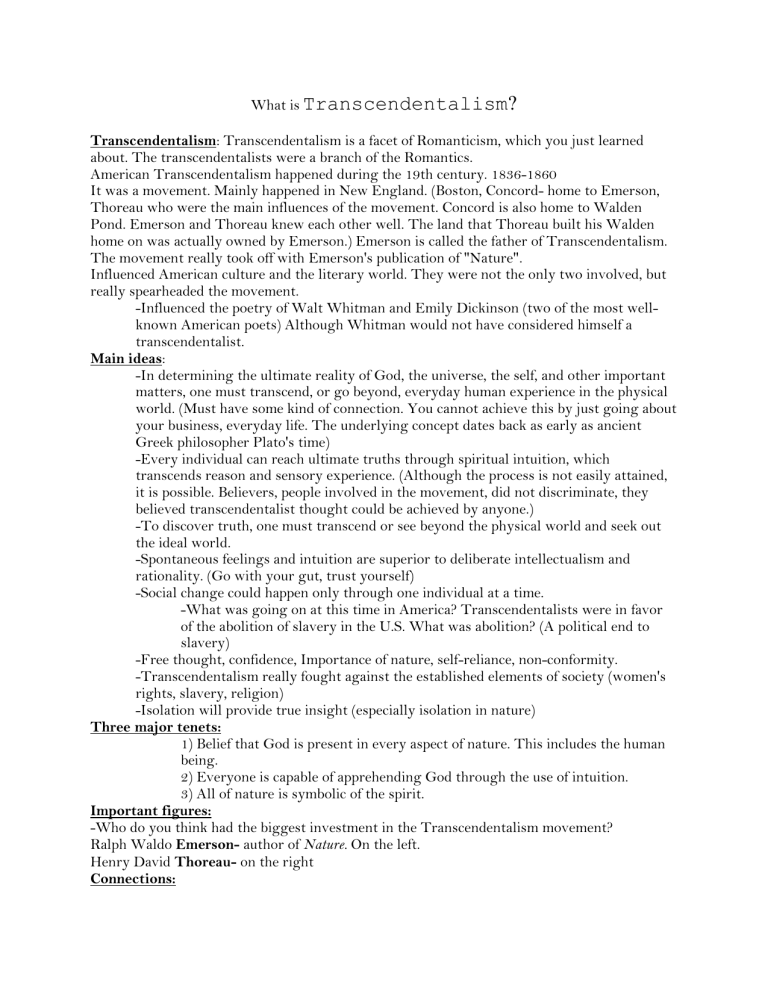
What is
Transcendentalism
?
Transcendentalism : Transcendentalism is a facet of Romanticism, which you just learned about. The transcendentalists were a branch of the Romantics.
American Transcendentalism happened during the 19th century. 1836-1860
It was a movement. Mainly happened in New England. (Boston, Concord- home to Emerson,
Thoreau who were the main influences of the movement. Concord is also home to Walden
Pond. Emerson and Thoreau knew each other well. The land that Thoreau built his Walden home on was actually owned by Emerson.) Emerson is called the father of Transcendentalism.
The movement really took off with Emerson's publication of "Nature".
Influenced American culture and the literary world. They were not the only two involved, but really spearheaded the movement.
-Influenced the poetry of Walt Whitman and Emily Dickinson (two of the most wellknown American poets) Although Whitman would not have considered himself a transcendentalist.
Main ideas :
-In determining the ultimate reality of God, the universe, the self, and other important matters, one must transcend, or go beyond, everyday human experience in the physical world. (Must have some kind of connection. You cannot achieve this by just going about your business, everyday life. The underlying concept dates back as early as ancient
Greek philosopher Plato's time)
-Every individual can reach ultimate truths through spiritual intuition, which transcends reason and sensory experience. (Although the process is not easily attained, it is possible. Believers, people involved in the movement, did not discriminate, they believed transcendentalist thought could be achieved by anyone.)
-To discover truth, one must transcend or see beyond the physical world and seek out the ideal world.
-Spontaneous feelings and intuition are superior to deliberate intellectualism and rationality. (Go with your gut, trust yourself)
-Social change could happen only through one individual at a time.
-What was going on at this time in America? Transcendentalists were in favor of the abolition of slavery in the U.S. What was abolition? (A political end to slavery)
-Free thought, confidence, Importance of nature, self-reliance, non-conformity.
-Transcendentalism really fought against the established elements of society (women's rights, slavery, religion)
-Isolation will provide true insight (especially isolation in nature)
Three major tenets:
1) Belief that God is present in every aspect of nature. This includes the human being.
2) Everyone is capable of apprehending God through the use of intuition.
3) All of nature is symbolic of the spirit.
Important figures:
-Who do you think had the biggest investment in the Transcendentalism movement?
Ralph Waldo Emerson- author of Nature.
On the left.
Henry David Thoreau- on the right
Connections:
Transcendentalism Club- Group of Cambridge intellectuals. Headed the movement originated "The Dial" (the first independent and original journal published in this country) Used as a weekly journal to spread their ideas.
Emerson and Thoreau were concerned with how industrialization would affect nature
Quote: and society. (foreshadowing the "going green" movement, perhaps they knew how prominent industrialization would become)
How is this idea similar to Romanticism? (imagination, intuition, idealism, inspiration, individuality)
"Standing on the bare ground,--my head bathed by the blithe air and uplifted into infinite space,--all mean egotism vanishes. I become a transparent eyeball; I am nothing; I see all; the currents of the
Universal Being circulate through me; I am part or parcel of God."
--Emerson, "Nature"
-Very famous caricature by Christopher Cranch.
-What does this make you think of? photography
